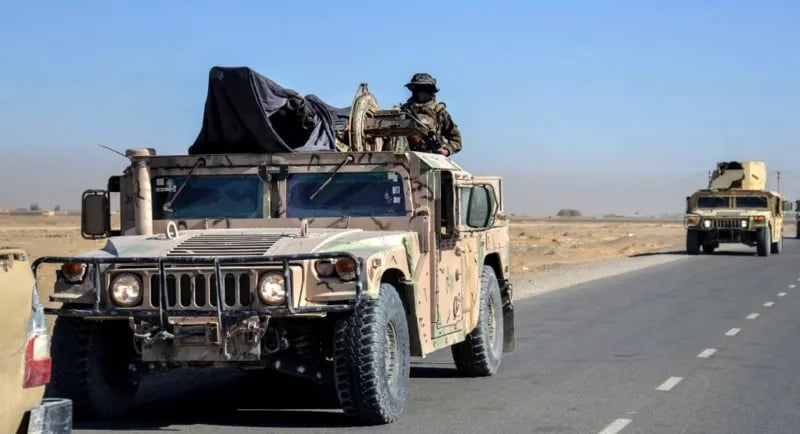GLOBISCOPE
Taliban Confirms Retaliatory Strikes on Pakistan After Alleged Airspace Violation
PAKISTAN
Globiscope
10/12/20253 min read


KABUL / ISLAMABAD — The Taliban government in Afghanistan has confirmed that its forces carried out retaliatory attacks on Pakistani military positions along the mountainous northern border, claiming that 58 Pakistani troops were killed in the clashes.
According to Zabihullah Mujahid, the Taliban’s chief spokesman, the strikes were launched in response to what Kabul described as a violation of Afghan airspace and a Pakistani air raid on a border market in Paktika province last Thursday. The Taliban labeled the incident “an act of retaliation to defend Afghanistan’s sovereignty.”
Pakistan Disputes Taliban Claims, Reports 23 Soldiers Killed
Pakistan, however, disputed the casualty figures, stating that 23 of its soldiers were killed in the cross-border fighting while claiming that around 200 Taliban fighters and allied militants were neutralized.
Interior Minister Mohsin Naqvi condemned the attacks as “unprovoked aggression,” accusing Afghan forces of targeting civilian areas. “For every brick fired at Pakistan, we will respond with a stone,” Naqvi warned in a post on X (formerly Twitter).
The minister added that the firing on civilian populations represented a “blatant violation of international law.”
Tensions Rise as Border Crossings Shut Down
Following the violence, Pakistan has closed its key border crossings with Afghanistan — Torkham in the north and Chaman in the south — leaving hundreds of cargo trucks stranded on both sides.
A Pakistani security source told the BBC that exchange of fire was reported at several flashpoints, including Angoor Adda, Kurram, Bajaur, Dir, Chitral, and Baramcha.
A police officer stationed near Zero Point in Kurram confirmed that heavy weapons fire from the Afghan side began around 10 p.m. local time, spreading across multiple sectors of the frontier.
Both Sides Report Casualties and Injuries
In Sunday’s press briefing, Mujahid said 30 Pakistani soldiers were wounded, while nine Taliban fighters lost their lives and up to 18 others were injured. Pakistan’s military later claimed 29 soldiers injured, asserting that Taliban and associated fighters suffered “hundreds of casualties.”
Meanwhile, Afghanistan’s Foreign Minister Amir Khan Muttaqi, currently visiting India, defended his government’s actions, saying Kabul had the right to protect its borders.
“We have no problem with Pakistan’s people or leadership,” Muttaqi told reporters in New Delhi, “but certain groups in Pakistan are trying to disrupt stability. Afghanistan has every right to defend its territorial integrity.”
Background: Escalating Border Tensions
Last week, the Taliban administration accused Pakistan of bombing a civilian market inside Afghanistan’s Paktika province, claiming several shops were destroyed and multiple civilians were injured. Islamabad has not confirmed or denied that strike.
Pakistan’s military leadership has frequently alleged that Afghanistan is being used as a base for militant operations, particularly by the Tehreek-e-Taliban Pakistan (TTP) — a banned organization that has waged an insurgency against Islamabad for years. The Taliban government in Kabul, however, denies harboring any such groups.
The latest escalation came as Muttaqi embarked on a historic visit to India, his first since the Taliban returned to power in 2021. During the trip, New Delhi announced plans to reopen its embassy in Kabul, signaling a cautious diplomatic thaw.
International Community Calls for Restraint
In the wake of rising tensions, Saudi Arabia — which recently signed a defense cooperation pact with Pakistan — urged both sides to exercise “maximum restraint” and avoid further escalation.
Qatar also voiced concern, encouraging dialogue and diplomacy between Islamabad and Kabul to restore calm along the border.
Despite these appeals, Pakistan’s interior minister maintained a defiant stance, warning:
> “Afghanistan will be given a befitting reply — just like India was — so it will think twice before acting against Pakistan again.”
Outlook: Border Conflict Threatens Regional Stability
The Afghanistan–Pakistan border, often described as one of the world’s most volatile frontiers, has witnessed frequent skirmishes and artillery exchanges in recent years. Analysts warn that this latest flare-up could further destabilize regional security at a time when both nations face internal political and economic challenges.
For now, the border remains sealed, trade is paralyzed, and diplomatic
communication between the two neighbors appears increasingly strained.


Globiscopes news 2025
Globiscopes news empowers the generation of tomorrow for a brighter future and hope for every individual.
inbox
Subscribe to our newsletter and never miss a story.
We care about your data in our privacy policy.
